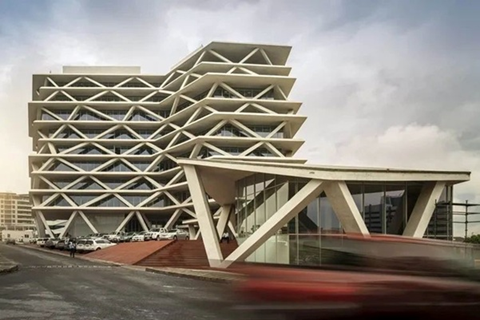
One Airport Square (OAS) Acquisition: A Turning Point for Ghana’s REIT Market
The recent acquisition of One Airport Square (OAS) by The Sentinel Commercial Real Estate Investment Trust (REIT) is being hailed as a catalyst for Ghana’s emerging REIT market.
REITs pool investor capital to acquire income-generating real estate like offices, warehouses, and apartments. This allows individuals to invest in property without directly managing it, offering benefits such as professional management, steady income through dividends, diversification, and inflation protection. However, investors should still consider risks such as market fluctuations, interest rates, and management quality.
This deal marks the first-ever acquisition by the Sentinel REIT — Ghana’s first licensed REIT under current guidelines from the Securities and Exchange Commission (SEC).
The nine-storey OAS, located in a prime area and offering high-end facilities with a strong tenant base, fits perfectly within Sentinel REIT’s investment strategy: acquiring high-quality, income-producing assets with long-term growth potential.
Market Confidence and Financing
This acquisition, supported by both equity and debt from leading local and international institutions, underscores the growing confidence in Ghana’s real estate investment space.
“The Sentinel REIT’s acquisition of OAS is a significant milestone. It shows how REITs can unlock value and create accessible opportunities for a wider range of investors,” said Kisseih Antonio, CEO of Sentinel Asset Management Limited.
Experts believe this success will encourage more REIT listings in Ghana, attracting local and foreign investors alike. Thanks to their income stability and resilience against currency depreciation, REITs are well-suited to risk-averse investors seeking diversification.
Wider Economic Impact
The growth of the REIT sector is expected to have a ripple effect across the economy — generating jobs, increasing investment in commercial infrastructure, and stimulating broader development in Ghana’s urban hubs.
Meanwhile, Ghana has seen a 33% reduction in its national housing deficit — from 2.8 million units in 2010 to 1.8 million in 2021. This has been driven by a real estate boom (72.8% increase in residential buildings) and targeted efforts by developers and organizations to expand housing stock.
Affordable Housing: Persistent Challenges
Despite this progress, access to affordable housing remains limited. High fuel prices, inflation, and poor access to housing finance have pushed prices beyond the reach of many Ghanaians. Most housing is produced through the informal economy, limiting access to formal property rights and deterring investment.
The rental market also faces difficulties, particularly in urban centers like Greater Accra where almost half of all households rent. Challenges include land tenure insecurity, unclear property rights, and high transaction costs.
Steps Toward Solutions
To address these issues, the Ghanaian government secured a US$75 million loan from the African Development Bank to improve the climate for affordable housing development and financing. Efforts are also being made to implement green building standards, supported by institutions like the IFC and Ghana Venture Capital Trust, which offer green housing finance and microfinance solutions.
With increasing investor confidence, government backing, and sustainable solutions gaining traction, Ghana's real estate sector — and its REIT market — are on the path to deeper growth and transformation.
Source: B&FT Online